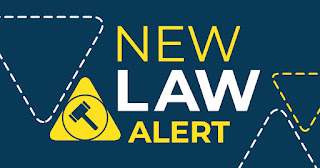Major revisions to the Paycheck Protection Program are on the way. The "Paycheck Protection Program Flexibility Act" amends the portion of the CARES Act that established the PPP. The changes are intended to make forgiveness of PPP loans more achievable for a greater number of businesses. Major changes include:
- 5 Year Maturity Date on Unforgiven Loan Amounts. Any portion of a PPP loan that is not forgiven is now subject to a minimum maturity date of five (5) years, up from two (2).
- Payroll Tax Deferral. PPP borrowers can defer 50% of their share of payroll taxes to 2021 and the remaining 50% to 2022.
- Expanded Forgiveness Period. What was an eight (8) week forgiveness period has been expanded to twenty-four (24) weeks from the origination of the loan or December 31, 2020, whichever comes first.
- More Non-Payroll Expenses. Up to forty percent (40%) of the loan can now be used for non-payroll expenses and still be forgiven. A new SBA rule may be required as existing SBA rules say only twenty-five percent (25%) of PPP funds may be used for non-payroll expenses.
- Full Employment Period Extension. Borrowers are now required to return to February 15, 2020 levels of full time employment by December 31, 2020 instead of June 30, 2020.
- Full Employment Level Exceptions. Borrowers who are unable to restore their full time employment to February 15, 2020 levels can make use of two new exceptions - if they cannot find qualified employees for unfilled positions, or if their business activity is reduced due social distancing requirements, capacity limitations, or other similar restrictions in place for employee and customer safety.
Keep an eye out for new SBA rules once President Trump signs this bill into law. If you already have a PPP loan, inquire with your lender to see how they will handle the material changes to your promissory note that this bill requires.
 |











